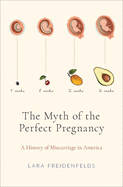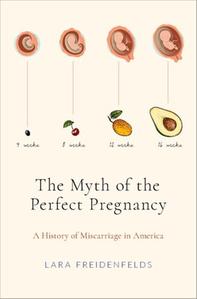
 Americans appear to have more control over their pregnancies than ever before. Changing social norms, the availability of birth control and major technological advances empower people to plan their pregnancies, monitor them extensively and learn about them months earlier than their forebears of even a generation ago. Many people celebrate their pregnancies earlier and more publicly than ever before, as a quick scroll through Facebook or Instagram is likely to demonstrate.
Americans appear to have more control over their pregnancies than ever before. Changing social norms, the availability of birth control and major technological advances empower people to plan their pregnancies, monitor them extensively and learn about them months earlier than their forebears of even a generation ago. Many people celebrate their pregnancies earlier and more publicly than ever before, as a quick scroll through Facebook or Instagram is likely to demonstrate.
And yet, despite these confident expectations, about 30% of detected pregnancies are lost--making miscarriage a very common, and even likely, fact of reproductive life.
In The Myth of the Perfect Pregnancy: A History of Miscarriage in America, historian Lara Freidenfelds describes how social, medical and technological forces over the past 250 years have conspired to create "a cultural consensus that fertility should be subject to individual control and planning, and that parenting should primarily be a matter of affection and attachment." This consensus, while not without its upsides, leads to heartbreak, guilt and stigma when it clashes with the biological reality of miscarriage.
It has also, Freidenfelds argues, has created a new, modern experience of pregnancy loss.
This "new experience," she shows, is partly temporal: discovering pregnancies very early also means experiencing miscarriages that would have been indistinguishable from normal menstrual periods in earlier eras. But prospective parents in the 21st century expect to have near-perfect control over their pregnancies and are therefore likely to view miscarriage as a tragic personal failure. Freidenfelds traces this modern experience of miscarriage to its origins in colonial America, showing how it resulted directly from changing attitudes toward fertility and parenting, the rise of the medical management of pregnancy and--insidiously--a booming capitalist culture around pregnancy and babies.
Evidenced throughout, and made explicit in the final chapter, Freidenfelds provides not just a fascinating, well-researched history, but also uses that history to dismantle unrealistic expectations of perfection and to argue for a more humane understanding of miscarriage. That understanding, she says, must make room for miscarriage as a normal part of fertility and childbearing.
Parents and aspiring parents may have the most immediate interest in this book, but the scope of its impact should not be limited to that group. Given how common miscarriage is, a broad range of readers have much to gain from Freidenfelds's call for a more compassionate and realistic approach to the subject. --Hannah Calkins, writer and editor in Indianapolis
Shelf Talker: Fascinating and expertly researched, this book traces the social, medical and technological forces that have shaped modern experiences of fertility, parenting and pregnancy loss.

